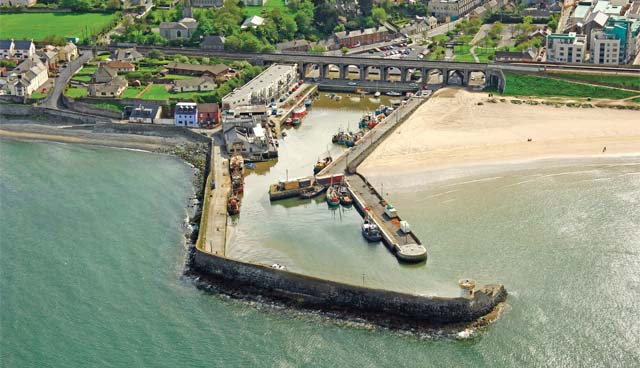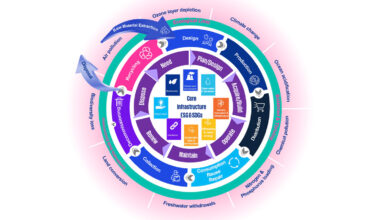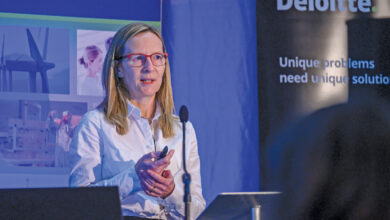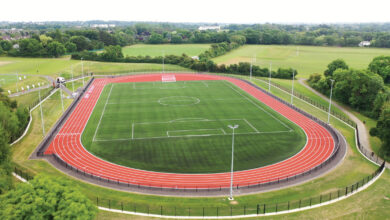Fingal and the National Development Plan

Fingal is to be one of the more significant locales during the implementation of the newly revised National Development Plan, with the area set to benefit from two of the plan’s most high-profile projects, and many more besides.
The MetroLink is the highest profile of the NDP projects to be associated with Fingal. The transport project is “likely the largest ever public investment project in the history of the State” according to the NDP, which also states that “this government is committed to its funding and delivery as quickly as possible”, although subsequent developments following the publication of the plan have revealed that the plan will most likely not come to fruition until after 2030.
When completed, MetroLink will consist of a 19km carbon-neutral railway service running north-south, connecting Swords to Dublin City Centre, with stoppages at key destinations in between such as Dublin Airport. The line will serve 15 stations and is estimated to have a journey time of approximately 25 minutes from Swords to the city centre. The service will also “provide passengers interchange opportunities with commuter rail, DART, Luas and numerous bus services along its route and support the development of a truly integrated public transport system in Dublin”.
Also to benefit the area in terms of transport infrastructure will be the construction of the DART+ Coastal North line, which will run to Drogheda via Balbriggan. The DART+ project “represents the single biggest investment in the Irish network” under Project Ireland 2040 and will both extend and electrify the rail line in order to “provide a sustainable, electrified and a more reliable train service with improved capacity”. The DART+ West programme received government approval in December 2021; DART+ Coastal has “just commenced the concept phase”, with contract award for construction “likely to be in 2024”.
The second of the high profile NDP projects due to benefit the Fingal area is the Greater Dublin drainage project, which has been earmarked as a strategic investment priority in the water sector. The status of the project is given as being in the planning and design stage in the NDP, with an estimated cost of between €500 million and €1 billion and an estimated completion date of 2029, with these estimates given on the assumption that “Irish Water can commence construction in 2024/2025”. It is stated that this “estimate will be reviewed and refreshed as the project progresses through the planning and procurement processes to account for any unforeseen planning/legal challenges or delays”.
The Greater Dublin Drainage project represents a major investment in water infrastructure for the Greater Dublin region and is set to answer the projected increased demand in the area, where wastewater generation is predicted to increase by over 50 per cent by 2050. The project includes the development of a new regional wastewater treatment facility and associated infrastructure for Dublin and parts of Kildare and Meath.
It is said to be “vital for residential and commercial development across north Dublin and south Fingal as new homes and businesses can only be built when there is adequate wastewater infrastructure in place to support them”. The population of Fingal has doubled to roughly 300,000 since 1994, and the local government area has the fastest growing population by rate (8.1 per cent) in the State. Coupled with Swords’ status as an emerging city, the drainage project will answer the wastewater needs of a rapidly expanding area.
Also included under the NDP is the provisional funding support to be delivered from the Urban Regeneration and Development Fund (URDF), which will benefit Fingal in the form of its support of the Balbriggan Rejuvenation Project, which will receive over €25 million in funding from the URDF and is stated to currently be in its preliminary business case. The funding is to be pledged towards eight projects under the Balbriggan rejuvenation plan that will cost €33.9 million overall, with Fingal County Council providing the remainder of the funding. The eight planned public realm improvements to be completed with the funding are: Quay Street; Balbriggan Harbour; 2/4 Dublin Street; Bridge Street; Railway Street; Millpond Park; promenade and coastal improvements; and a cycleway from Bremore Castle to Ardgillan Castle, which will comprise the Balbriggan-Skerries portion of the Fingal Coastal Way.
The eight projects are to be delivered in phases, with the first phase scheduled for completion by the end of 2023. The first phase will involve the redesign of Quay Street, the upgrading of the Harbour area and the development of artists’ studios and a digital innovation/maker space at 2/4 Dublin Street. The second phase, which will involve the redevelopment of buildings on Bridge Street, improvements to the promenade and coastal areas and the construction of the cycleway, is anticipated to complete in 2026, according to the council. The third and final phase is due for completion by 2027 and will be focused on the rejuvenation of Railway Street and Millpond Park.
Former Mayor of Fingal, Councillor David Healy said that the funding and project would transform Balbriggan town centre: “The infrastructure and public realm improvements which can now proceed will support a number of connected purposes. Improvements to public space will support quality of life and community life in Balbriggan. In doing so they will underpin the development of the local economy as well as the transition to a decarbonised economy and society which is at the core of both national and Fingal policies.”





